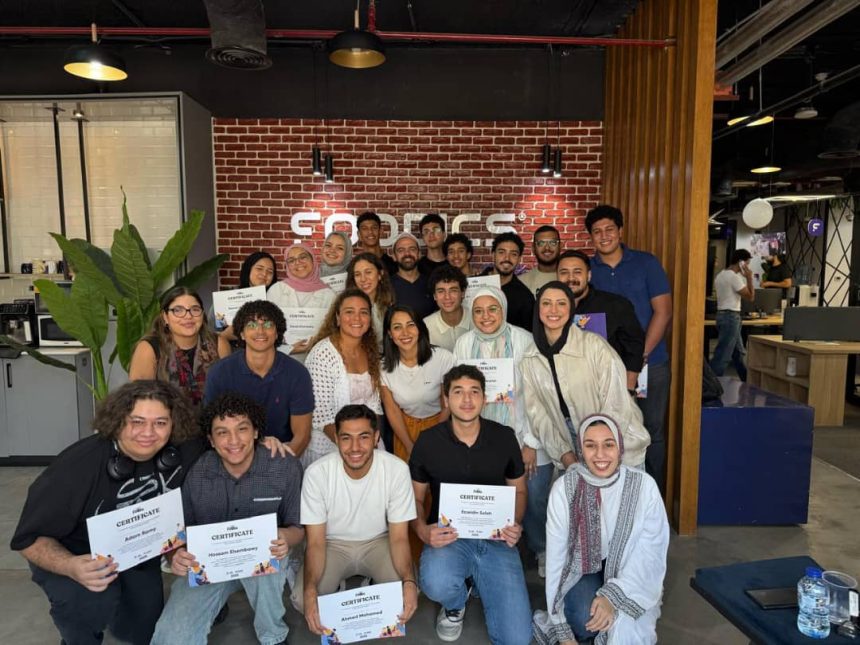In Cairo, Egypt, Foodics, the MENA region’s leading provider of restaurant management and fintech solutions, announces to return this summer with the second edition of its “Foodics Folks” internship program, expanding opportunities for Egyptian youth to gain real-world experience in the food and beverage (F&B) industry.
In a press release forwarded to Techparley Africa on Sunday, the initiative will target 20 university students aged 18 to 21, doubling its scale from last year and positioning itself as one of the most comprehensive hands-on training programs in the region.
“This program embodies Foodics’ commitment to contributing to the development of a new generation of qualified professionals in the F&B industry,” said Belal Zahran, International Managing Director at Foodics Egypt & UAE.
“We aim to bridge the gap between academia and the requirements of the job market by equipping students to the highest professional standards.”
Blending Office Learning with Restaurant Training
The four-week program focuses to offer students a dual training pathway: two weeks in Foodics’ Cairo office, followed by two weeks of direct immersion at 10 of the city’s most recognized restaurants. Inside the office, participants will rotate across human resources, sales, marketing, onboarding, accounting, and software departments, giving them a corporate-level understanding of how a global food-tech company operates.
The restaurant phase, however, is where students will gain their most practical insights. Partners such as Dancing Goat, Holy Buns, Eden Bakery, Dirty Cookie, and Hola Tacos will host trainees, allowing them to engage directly with chefs, managers, and staff in real-time operations.
“The restaurant rotation is critical,” explained Zahran. “It gives students the chance to see how our digital solutions are applied on the ground, whether in order management, customer engagement, or optimizing supply chains.”
Skills for a Fast-Changing Market
Beyond the mechanics of running a restaurant, Foodics will emphasize the digital transformation reshaping the F&B sector. With Egypt’s food services market projected to grow at a compound annual rate of over 7 percent by 2028, the need for tech-savvy professionals is becoming urgent.
Students will be exposed to Foodics’ cloud-based systems that automate everything from inventory control to marketing analytics.
But the training extends beyond hard skills. Soft skills, communication, teamwork, leadership, and problem-solving are embedded into the program through interactive sessions and collaborative projects.
“You cannot succeed in hospitality without being able to work in a team or solve problems on the spot,” said one program mentor. “We train our students to think like professionals, not just interns.”
Investing in Egypt’s Youth
The expansion of the program from 10 students last year to 20 this year demonstrates Foodics’ growing investment in Egypt’s young workforce.
According to the Central Agency for Public Mobilization and Statistics (CAPMAS), youth unemployment in Egypt hovers around 18 percent in 2025, with thousands of graduates struggling to find entry-level roles despite holding university degrees.
By offering a pathway into the F&B industry, an industry that contributes nearly 14 percent of the national GDP, Foodics is responding to a clear gap between education and employment.
“By exposing students to real restaurant operations powered by advanced technologies, we are preparing them to either launch their own ventures or secure jobs in this vital sector,” Zahran added.
“It is not just about learning, it is about empowering the next generation to build sustainable careers.”
Several of the restaurants hosting the program welcomed the initiative as a much-needed boost for the sector. A manager at Eden Bakery noted, “It is refreshing to see students come in with curiosity and leave with confidence. Programs like this make a real difference for the industry.”
What This Means for Egypt
Foodics’ internship program arrives at a crucial time for Egypt, where high youth unemployment and rapid technological change are redefining the labor market.
With the food and beverage sector, one of the country’s fastest-growing industries, becoming increasingly dependent on digital tools such as point-of-sale systems and AI-driven customer engagement, the initiative bridges the gap between academic training and market needs by equipping students with both technical expertise and industry exposure.
Experts argue that such programs, which blend technology, soft skills, and real-world application, could serve as a model to reduce unemployment and boost productivity across sectors.
Beyond Egypt, the program reflects a broader regional push in the Gulf and North Africa to diversify economies and embrace digital transformation, positioning Foodics not only as a key player in restaurant tech but also as a driver of the next generation of food-tech professionals in the MENA region.
Talking Points
Foodics’ decision to expand its internship program in Egypt is a strategic step with implications that reach far beyond the food and beverage sector, holding real promise for Africa’s wider digital and economic development.
By growing from 10 students last year to 20 this year, and potentially scaling to hundreds in the near future, the initiative could evolve into a pipeline that systematically produces digitally skilled, job-ready professionals capable of transforming one of the continent’s largest industries.
With Africa’s youth population projected to double by 2050 and unemployment already a pressing challenge, equipping young people with training in cloud-based systems, data-driven management, and customer engagement tools not only prepares them for employment but also empowers them to innovate within the sector.
Such scaling would support Egypt’s Vision 2030, align with Africa’s push under AfCFTA for cross-border economic growth, and serve as a model for how private companies can close the skills gap, digitize informal markets, and harness the continent’s demographic dividend for sustainable development.





